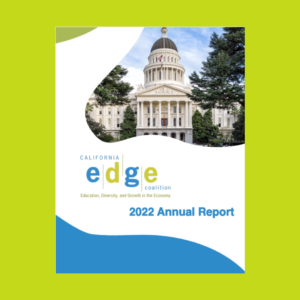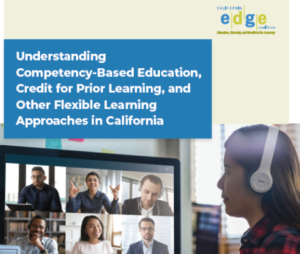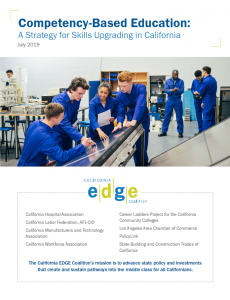
2022 Annual Report
Dear Friends, California has a staggering number of unfilled good jobs and an incredible pool of talent living in poverty or below a living wage.
Career technical education (CTE) students attending California community colleges pay the lowest tuition and fees in the nation. Yet the cost of attending college is extremely high given the expense of housing, food, books, supplies and transportation. There also is evidence that the Cal Grant program – California’s financial aid program – is not working well for students pursuing vocational and technical degrees and certificates.
This policy brief describes Cal Grants and suggests ways to make the program more useful to CTE students. To learn more, download the full text of the article here.
Few community college CTE students receive the competitive Cal Grant award and data suggests that the Cal Grant C- which is designed specifically for students attending a CTE program – has not worked well for the community college CTE student. While community college students received 77% of all Cal Grant C awards in the 2014-15, they historically receive only 29% of the awarded funds.
1. Provide community college CTE students with an access award to help cover their living expenses 2. Create an Entitlement Award for Lower-Unit CTE Programs 3. Simplify the Grant Award process 4. Improve Marketing and Outreach

Dear Friends, California has a staggering number of unfilled good jobs and an incredible pool of talent living in poverty or below a living wage.

EDGE recently partnered with the California Association of Alcohol and Drug Program Executives (CAADPE) to publish a new report, Identifying Barriers to Employment After Substance

Dear Friend, I’m excited to bring you the first annual State of the California EDGE Coalition Report intended to provide you with an overview of our successes

Postsecondary credential attainment is a primary path to economic and social mobility. However, more than 5.5 million Californian adults have some college but no degree and are no longer enrolled. For millions more who are juggling personal and work responsibilities, fitting college into an already hectic life seems impossible.

. A new policy brief released by the California EDGE Coalition examines the ways in which other states are now successfully employing competency-based approaches to teaching and learning which allow students to move flexibly – and often much more quickly – through an educational program that is designed to make sure they know and can do what is expected of graduates.

Many Californians face significant financial, educational and navigational barriers to completing the education and training they need to succeed in today’s labor market. Read our latest publication, Making Certificate and Degree Completion More Affordable and Accessible for Low-Wage Workers